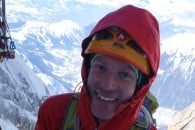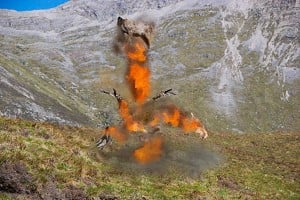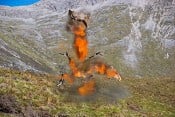
UKC Article - Mountain Rescue - The Truth
In the latest incident on the highest mountain in Wales, forty eight rescuers were needed to assist two walkers who had been blown from the path high on the mountain. The poor weather and high winds meant that the helicopter couldn't fly close to the accident site, and the treacherous conditions underfoot meant that carrying stretchers was out of the question.
Reported on the BBC site, Ian Henderson, of Llanberis Mountain Rescue, said one of the injured rescuers had possible broken ribs.
In his article, Mark Reeves details the extremely harrowing and sometimes dangerous conditions faced by the team members on a weekly basis:
"As we scramble up the hillside, the full force of the impact is apparent, as clothing and rucksacks that have been ripped off his body are strewn across the mountain side; a mobile phone broken and scattered; blood, and body parts spread out over 100 metres or more. It was truly a gruesome sight of a quick and violent death..."
With funding and training high on Mark's list of issues, this article asks some important questions, some of which are difficult to answer.
UKC Article - Mountain Rescue - The Truth
The Llanberis mountain rescue team respond to around 90 incidents a year. You can donate to the team on their page: llanberismountainrescue.co.uk.






Comments